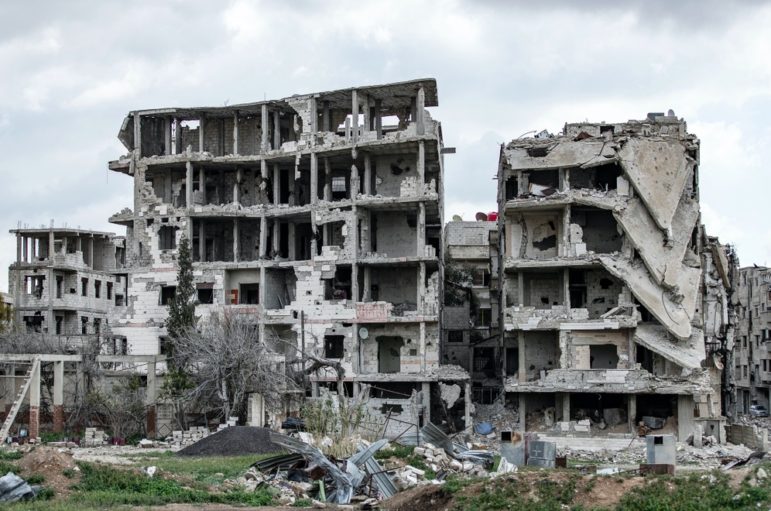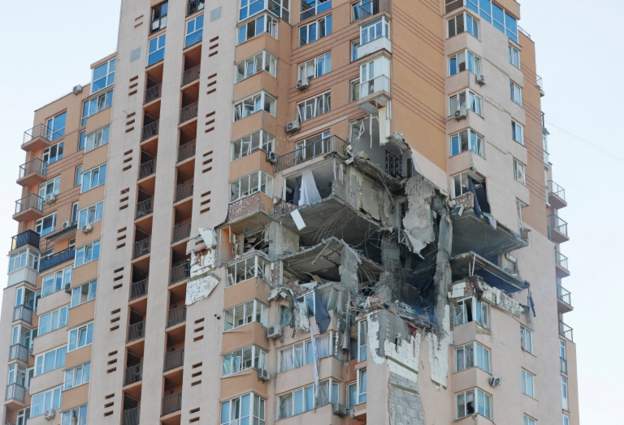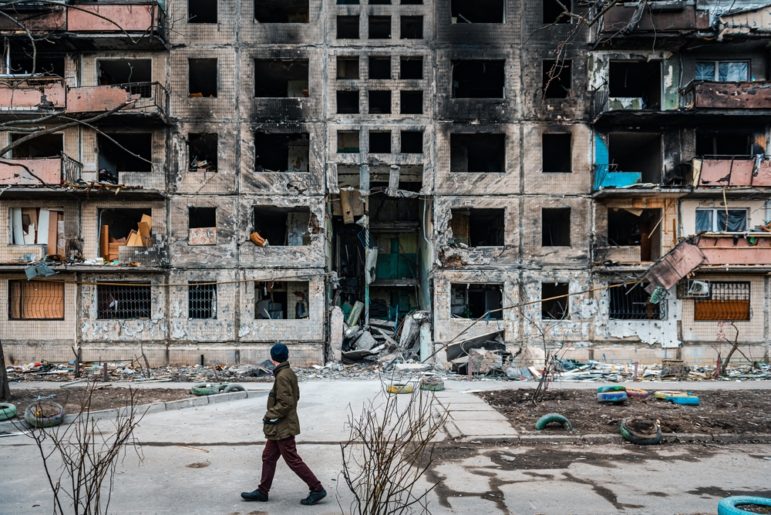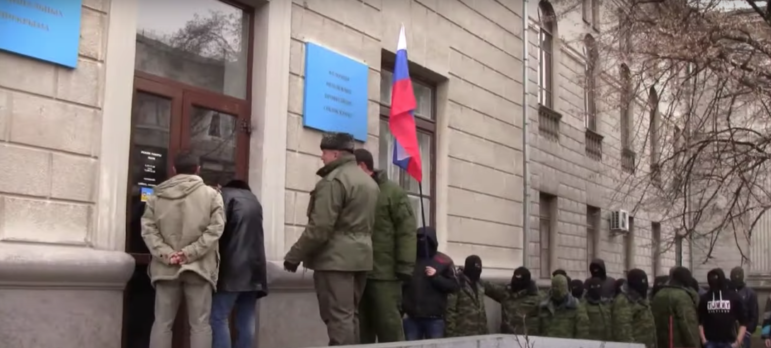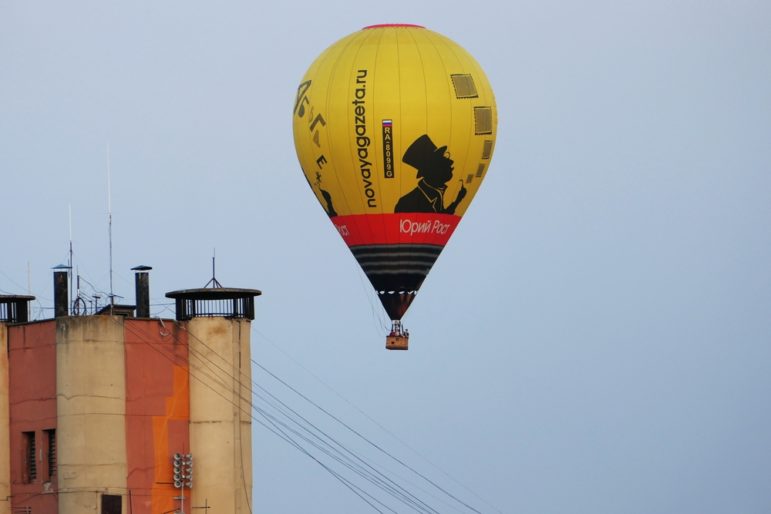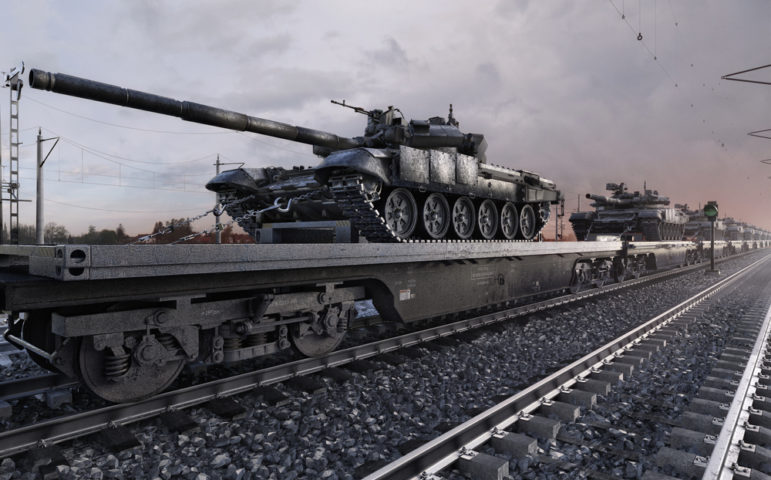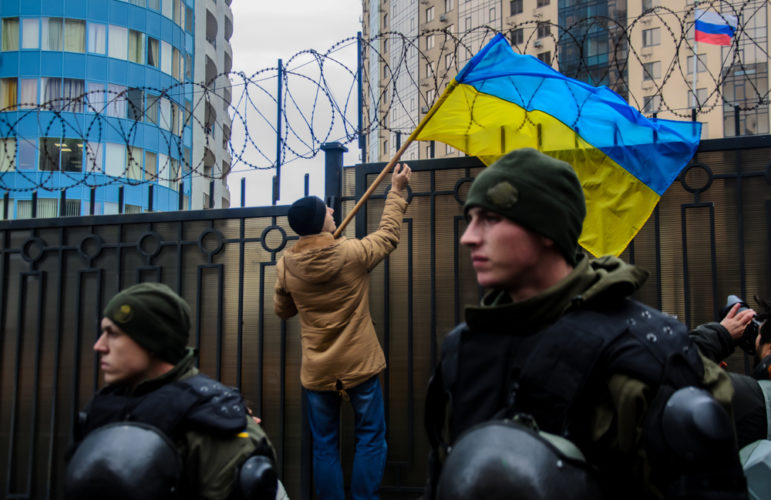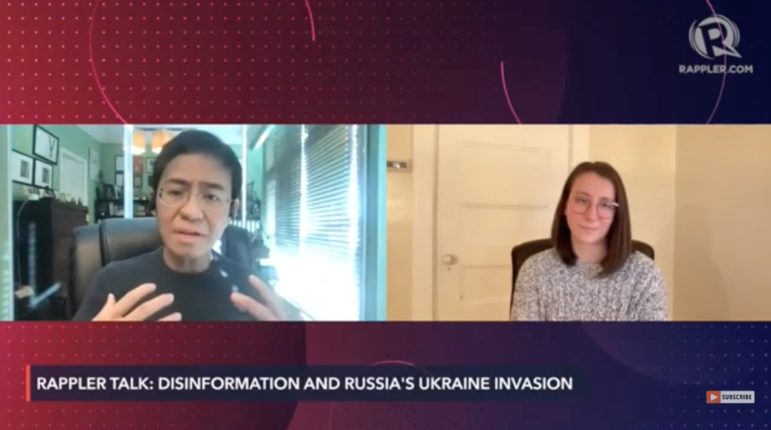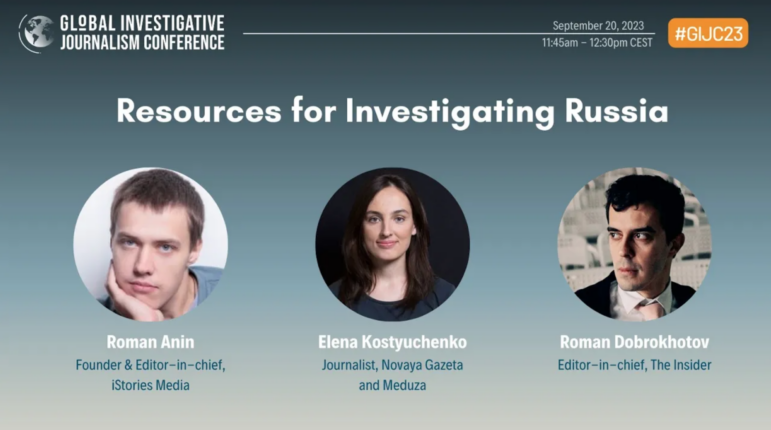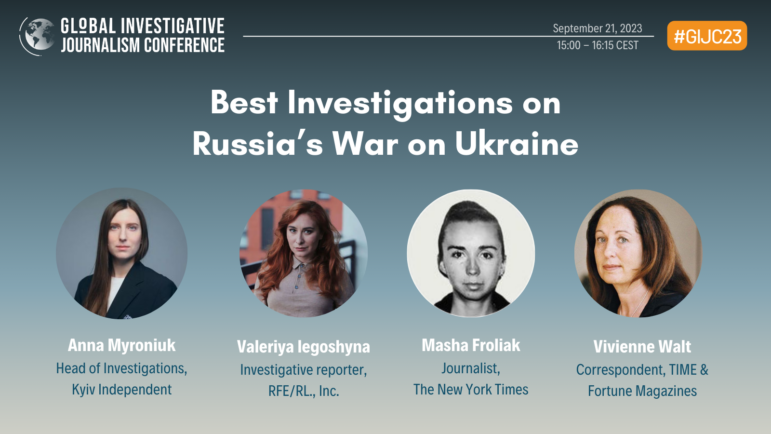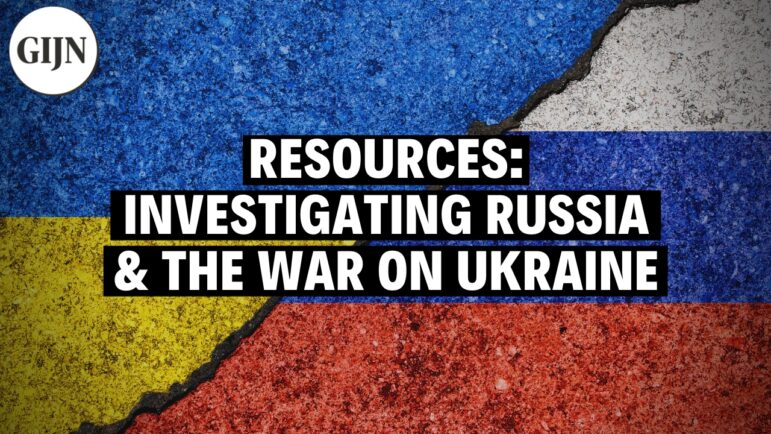
Guide
Investigating Russia and the War in Ukraine
Read this guide in
Since Russia’s invasion of Ukraine, GIJN has published a series of stories and tipsheets for investigative journalists covering the war. This includes a wide range range of topics, from tracking Russian assets to investigating war crimes.
Below you’ll find a list of the useful resources produced by GIJN or reposted from our members and partner organizations. All of these stories have been translated to Russian.
Check back for updates.
Chapters
Chapter Guide Resource
9 Best Practices for Investigating Refugee Issues
GIJN presents a best practices tipsheet for investigating issues related to refugees and migration.
Chapter Guide Resource
Lessons Learned from Syrian Journalists Investigating Russian War Crimes
Syrian journalists have gained extensive experience documenting possible human rights violations and war crimes by the Russian military. GIJN spoke with several of these reporters to understand the lessons they learned, and how investigative journalists can cover the Ukraine invasion more effectively.
Chapter Guide Resource
Investigating Russia Around the World: A GIJN Toolkit
GIJN has assembled a kind of starter-toolkit to help journalists track Russian money, political interference, and disinformation in their own countries. From oligarch planes to sanctions trackers, you’ll find over 30 useful sites here.
Chapter Guide Resource
15 Tips for Investigating War Crimes
Reporting violations in an active conflict, previously a daunting and life threatening task, has now become easier thanks to open-source reporting techniques, which provide investigative journalists much greater ability to investigate war crimes as they happen.
Chapter Guide Resource
Amateur Open Source Researchers Go Viral Unpacking the War in Ukraine
From college sophomores to 9-to-5 tech workers, open source hobbyist-investigators are gaining huge audiences by reconstructing events on the ground in Ukraine and elsewhere around the world.
Chapter Guide Resource
Essential Steps for Journalists in Emergency Situations
Journalists receiving threats often have to flee their homes in a matter of a few hours. Conflicts, though, are often foreseeable and that’s why those in fragile regions should have an exit plan in place and crucial documents ready to go. We’ve listed what documents journalists should gather as well as which organizations support journalists with relocation.
Chapter Guide Resource
Russia’s Attack on the Free Press: Insight and Survival Strategies from Meduza and Novaya Gazeta
An editor from Novaya Gazeta and the chief executive of Meduza discussed ongoing censorship and other threats to independent media inside Russia, plus their plans for the future, during an International Press Institute webinar.
Chapter Guide Resource
Bellingcat’s Grozev on Investigating Russia’s Invasion of Ukraine
Christo Grozev, the executive director of Bellingcat, gives his insights for covering the Russian invasion of Ukraine. He talks about how the role of reporters has changed in modern day conflict, and reveals how his team is gathering and verifying data while focusing on investigating potential war crimes.
Chapter Guide Resource
Tips for Archiving Telegram Messages on Russia-Ukraine War
With Facebook blocked and Twitter restricted, Telegram is one of the last social network applications fully accessible to internet users in Russia. Archiving Telegram reports of military engagements from on the ground in Ukraine ensures any evidence can still be used by researchers if a user deletes a post, if a channel is removed, or if an entire platform becomes inaccessible.
Chapter Guide Resource
Journalism Resources for Tracking Events in Ukraine
Following the news of Russia’s invasion of Ukraine is difficult, especially if you’re not already extremely knowledgeable about the situation. So, Nieman Lab has compiled a resource list for journalists looking for reliable news coverage of the Russian invasion of Ukraine.
Chapter Guide Resource
10 Tips for Tracking Russian-Owned Assets
OCCRP senior investigator Tom Stocks shares 10 best practices for tracking the mansions and superyachts of Russian oligarchs and officials deemed closest to President Vladimir Putin.
Chapter Guide Resource
Digging Into the Disinformation Campaign Behind Russia’s War on Ukraine
An interview between Nobel Peace prize-winning editor Maria Ressa and Ukrainian-born disinformation journalist Jane Lytvynenko revealed that long-running disinformation has been at the heart of Russia’s latest, and most devastating, attack on a democratic Ukraine.
Chapter Guide Resource
Video: GIJC23 – Resources for Investigating Russia
Russia matters. A generation after the Cold War, Moscow still has thousands of nuclear weapons. Come hear from two of the best at digging out what’s really happening in Putin’s Russia.
Chapter Guide Resource
Video: GIJC23 – Best Investigations on Russia’s War on Ukraine
The challenges for journalists covering Russia’s invasion of Ukraine are massive. In this panel, we bring together three senior journalists who have investigated the war on Ukraine. They will offer tips, tools, and advice on how to cover this ongoing conflict — but also what they have learned about integrating different investigative methods.


